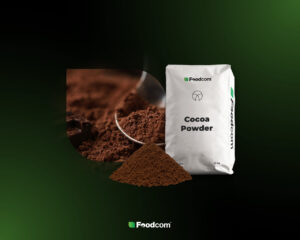- Cocoa production in Ghana has declined significantly, reaching record lows.
- Growers are showing dissatisfaction over inadequate action by the government.
- Farmers’ sentiments could significantly affect the outcome of the upcoming elections.
- Competing parties are putting forward their demands towards cocoa growers. Providing access to free fertiliser may be key.
Ghana’s cocoa economy still on the brink
Ghana’s economy suffered significantly after the pandemic and subsequent crisis, but is now bouncing back from the day. However, cocoa production is still not back to normal, affected by extreme weather conditions as a result of climate change and plant diseases. This is significant for the global cocoa market as Ghana is the world’s second largest producer of cocoa. Ghana’s cocoa production peaked in 2021, but since then production has fallen sharply, reaching its lowest level in decades last season. Many farmers believe that the current cocoa crisis is largely the responsibility of the government, which has failed to take action to stop illegal gold mining, a practice that has destroyed large areas of cocoa cultivation.
Why are cocoa farmers important for the upcoming elections?
Ghana’s cocoa farmers make up a large part of the country’s electorate – 2 million voters out of a total of over 18 million grow cocoa. Dissatisfaction with the government is translating into farmers changing their political views, pledging to vote for the National Democratic Congress (NDC) party instead of the current ruling New Patriotic Party (NPP). The NPP party is therefore likely to lose the majority of wavering votes, even though those in power recall that they have increased cocoa procurement prices for farmers, which has helped to improve the market. However, farmers insist that the increase was insufficient – Ghana’s currency is losing value and the price of cocoa on world markets is rising, leaving farmers’ incomes far behind and fuelling smuggling.
Suspicions of corruption and waste directed at Cocobod, the state-owned company that manages the cocoa sector, whose administrative costs have risen significantly, do not help. In the process, Cocobod is cutting back on money going to farmers, including by withdrawing its free fertiliser programme. The NDC promises to distribute free fertilisers to farmers, improve Cocobud’s management, reduce administrative costs, and take measures to combat illegal mining and smuggling. The NPP, too, proposes to implement a recovery plan to increase farmers’ share of cocoa revenues. Industry representatives remain sceptical about the promises of both candidates. Farmers’ votes are likely to be won by the party that promises to implement concrete solutions, such as free fertiliser for cocoa farmers. Elections in Ghana will be held on 7 December.

![Upcoming elections in Ghana important for cocoa farmers [World News] Upcoming elections in Ghana important for cocoa farmers [World News]](https://foodcom.pl/wp-content/uploads/2023/09/Foodcom_World_News_Global_Stock-1520x760.jpg)


![Suspected adulteration of olive oil composition in Spain [World News] Suspected adulteration of olive oil composition in Spain [World News]](https://foodcom.pl/wp-content/uploads/2023/09/Foodcom_World_News_Plant-Based-600x300.jpg)
![Poland opposes Mercosur deal; protests continue [World News] Poland opposes Mercosur deal; protests continue [World News]](https://foodcom.pl/wp-content/uploads/2023/09/Foodcom_World_News_Global-600x300.jpg)
![Latest reports illuminate the problem of mycotoxin contamination of feed [World News] Latest reports illuminate the problem of mycotoxin contamination of feed [World News]](https://foodcom.pl/wp-content/uploads/2023/09/Foodcom_World_News_Feed-600x300.jpg)

